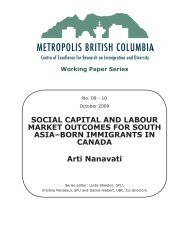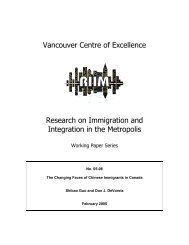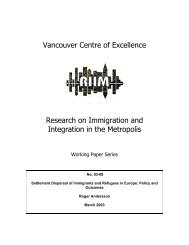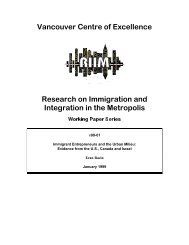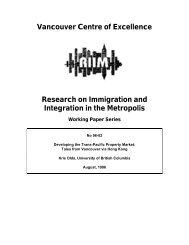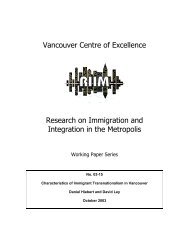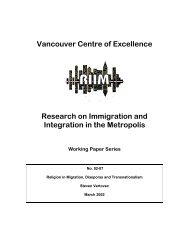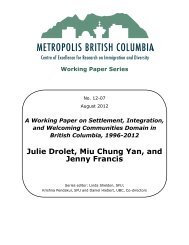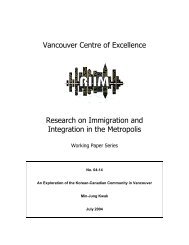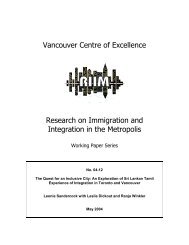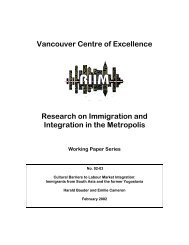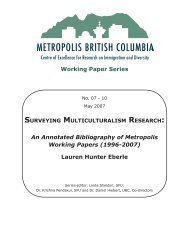Modernization and Global Restructuring of Women's Work
Modernization and Global Restructuring of Women's Work
Modernization and Global Restructuring of Women's Work
Create successful ePaper yourself
Turn your PDF publications into a flip-book with our unique Google optimized e-Paper software.
23<br />
modernity” is juxtaposed/worked into the openness <strong>of</strong> the home space. In crossing the border with<br />
this story, Nadia implicates the colonial/western narrative <strong>of</strong> women/Muslim women as backward <strong>and</strong><br />
oppressed.<br />
The analytical framework <strong>of</strong> the two paradigms has allowed us to take the leap from<br />
reification <strong>of</strong> the text towards making <strong>of</strong> the text. In doing so we have endeavored to treat human<br />
agency in the context <strong>of</strong> a lived life embedded in the larger social <strong>and</strong> political contexts. It is at this<br />
level that we can “talk about women as historical subjects <strong>and</strong> in terms <strong>of</strong> their historical experiences”<br />
(Ong 1987: xiii). The emphasis on gendered agency – life in the making <strong>and</strong> the possibility <strong>of</strong> it being<br />
nipped at the bud – points to the fact that the most important form <strong>of</strong> action take place at the margins<br />
– the small/civil voices. As Ortner (1994: 391) has aptly expressed it: it is these forms <strong>of</strong> action that<br />
brings into relief the shape <strong>of</strong> any given system. This aspect was brought home to during our last<br />
meeting when Nadia said: “When I first came to Canada, I was full <strong>of</strong> hopes <strong>and</strong> dreams. I had<br />
worked hard in Iran <strong>and</strong> I was willing to do that here too. Now I have just stopped dreaming. I have<br />
stopped trying.” Not having a space to express her agency in her new homel<strong>and</strong>, Nadia resorts to<br />
telling her story through the civil-voices paradigm to ensure that she is not cast as a victim. Insights<br />
from the two paradigms position us to give a politicized <strong>and</strong> humane (not faceless) response to<br />
Nadia’s question as to why she <strong>and</strong> other immigrant women are not able to work in their areas <strong>of</strong><br />
expertise in Canada. It is between the spaces <strong>of</strong> the two paradigms that we can vigorously interrogate<br />
<strong>and</strong> challenge the exclusionary practices <strong>of</strong> the Canadian labour force <strong>and</strong> the gendered project <strong>of</strong><br />
modernity where women continue to find themselves on the margins. It is from these very spaces that<br />
women tell their stories to effect change.



